|
50,000 HR PROFESSIONALS ARE CONNECTED THROUGH OUR NIRATHANKA HR GROUPS. YOU CAN ALSO JOIN AND PARTICIPATE IN OUR GROUP DISCUSSIONS.
|
|
Prosecution under Section 29 of the Industrial Disputes Act, 1947 for breach of Settlement/Award – Order under Section 29 Of the Industrial Disputes Act, 1947 cannot be passed lightly: 1. Unless specific breach or continuing breach is recorded, Authority would not get jurisdiction to grant permission. 2. The Authority which grants permission has greater responsibility 3. The Authority which grants permission shall apply its mind and record its finding with regard to breach or continuing breach, acknowledging the consequences that may result from such permission.
0 Comments
Karnataka societies registration Act not applicable for apartment association
According to the data provided, the Karnataka Societies Registration Act, 1960 does not apply to apartment associations. A society registered under this act is not considered a "Public Authority" and therefore, the provisions of the Right to Information Act, 2005 are not applicable [S. S. Angadi VS The State Chief Information Commissioner, Karnataka Information Commission]. The Karnataka Societies Registration Act, 1960 is applicable to all societies in Karnataka that are under the control of the government and its purpose is to regulate the activities of these societies and prevent misuse of funds [S. S. Angadi VS The State Chief Information Commissioner, Karnataka Information Commission]. In the case of an apartment association known as 'Comfort Towers', it was registered under the Karnataka Societies Registration Act, 1960 for the purpose of maintenance of the buildings [COMFORTS TOWER CONDOMINIUM COMFORTS TOWER VS DISTRICT REGISTRAR]. However, it is important to note that the Karnataka Apartment Ownership Act, 1972 also governs the ownership and management of apartments [COMFORTS TOWER CONDOMINIUM COMFORTS TOWER VS DISTRICT REGISTRAR]. It is mentioned that under the Karnataka Societies Registration Act, 1960, registration is permitted for associations whose objects are not limited to the promotion of culture, sports, or education, but also include their own trade or professional interests [SUGAR-CANE GROWERS ASSOCN. VS STATE]. This indicates that the Act allows for the registration of various types of associations, not solely limited to specific purposes. Furthermore, it is stated that the Karnataka Societies Registration Act, 1960 provides for the amendment of the name and rules of a society [KARNATAKA STATE CRICKET ASSOCIATION VS DISTRICT REGISTRAR OF SOCIETIES BANGALORE URBAN DISTRICT]. In this case, the petitioner association sought to amend its rules and regulations and filed the amendment with the Registrar. However, the registration of the amendment was rejected due to a delay in filing, which was later challenged in court [KARNATAKA STATE CRICKET ASSOCIATION VS DISTRICT REGISTRAR OF SOCIETIES BANGALORE URBAN DISTRICT]. Based on the available data, it can be concluded that the Karnataka Societies Registration Act, 1960 is applicable to societies in Karnataka and provides a framework for their registration, maintenance of accounts, and elections. However, it does not apply to apartment associations, which are governed by the Karnataka Apartment Ownership Act, 1972. The Act allows for the registration of various types of associations, and its provisions can be subject to interpretation and legal challenges in specific cases. It is important to note that the provided data is limited and additional research and analysis may be required to fully understand the intricacies of the Karnataka Societies Registration Act, 1960 and its application in different scenarios. https://supremetoday.ai/issue/Karnataka-societies-registration-Act-not-applicable-for-apartment-association ಬೆಂಗಳೂರು: ‘ವಸತಿ ಫ್ಲಾಟ್ ಗಳನ್ನು ಹೊಂದಿದ ಅಪಾರ್ಟ್ಮೆಂಟ್ ಸಂಕೀರ್ಣದ ನಿರ್ವಹಣೆಗಾಗಿ ಅವುಗಳ ಮಾಲೀಕರು ಕರ್ನಾಟಕ ಅಪಾರ್ಟ್ಮೆಂಟ್ ಮಾಲೀಕತ್ವ (ನಿರ್ಮಾಣ ಉತ್ತೇಜನ, ಮಾರಾಟ, ನಿರ್ವಹಣೆ ಮತ್ತು ವರ್ಗಾವಣೆ ನಿಯಂತ್ರಣ) ಕಾಯ್ದೆ-1972ರ ಅಡಿಯಲ್ಲಿ ಮಾತ್ರವೇ ತಮ್ಮ ಸಂಘವನ್ನು ನೋಂದಣಿ ಮಾಡಿಕೊಳ್ಳಬೇಕು’ ಎಂದು ಹೈಕೋರ್ಟ್ ಆದೇಶಿಸಿದೆ. ಈ ಕುರಿತಂತೆ ಕೆಂಗೇರಿಯ ಕೊಮ್ಮಘಟ್ಟ ಮುಖ್ಯರಸ್ತೆಯಲ್ಲಿರುವ ಎಸ್ ಎಂ ವಿ ಲೇಔಟ್ ನಲ್ಲಿರುವ, ‘ಡಿ.ಎಸ್-ಮ್ಯಾಕ್ಸ್ ಸ್ಟಾರ್ನೆಸ್ಟ್ ಅಪಾರ್ಟ್ಮೆಂಟ್’ನ ಆರ್. ಅರುಣ್ಕುಮಾರ್ ಸೇರಿದಂತೆ ಒಟ್ಟು 13 ಮಾಲೀಕರು ಸಲ್ಲಿಸಿದ್ದ ರಿಟ್ ಅರ್ಜಿ ವಿಚಾರಣೆ ನಡೆಸಿದ ನ್ಯಾಯಮೂರ್ತಿ ಅನಂತ ರಾಮನಾಥ ಹೆಗಡೆ ಅವರಿದ್ದ ಏಕಸದಸ್ಯ ನ್ಯಾಯಪೀಠ, ‘ಕರ್ನಾಟಕ ಸಹಕಾರ ಸಂಘಗಳ ಕಾಯ್ದೆ-1959 ರಡಿ ನೋಂದಣಿ ಮಾಡಿಸುವುದು ಅನುಮತಿ ಯೋಗ್ಯವಲ್ಲ’ ಎಂದು ಸ್ಪಷ್ಟಪಡಿಸಿದೆ.
We do engage people suitable to any position based on technical skills with expertise in the respective area. The engagement is based on an "Employment Contract" normally captioned as Letter of Appointment. The Employment Contracts may be normal ones and may incorporate certain conditions like non-compete, non-solicitation, non-disclosures of technical knowhow, serving the company for a stipulated number of years, if not, to claim un-liquidated or liquidated damages in case of any breach by either party, to safeguard Intellectual Property, etc. Any Employment Contract must stand the test of Law at any time, otherwise, it is a futile one. Hence, it is essential that while drafting an Employment Contract one must keep in mind its enforceability before a Court of Law. Hence, an attempt is being made in this direction to enlighten the professionals in this article.
Follow HR Learning Academy WhatsApp Channel by clicking the below link:
https://whatsapp.com/channel/0029Va4vHVm1CYoX8FwvPZ1h
By:
K. Vittala Rao Legal & Management Consultant and Author of Labour Law Books
Follow HR Learning Academy WhatsApp Channel by clicking the below link:
https://whatsapp.com/channel/0029Va4vHVm1CYoX8FwvPZ1h
By:
K. Vittala Rao Legal & Management Consultant and Author of Labour Law Books
Now, high time, HR, being a partner in business, to assertively exhibit its competencies in moving towards business goals. It is a project by itself to be owned by HR, and although challenging, is an essential & inevitable one.
Introduction
As we know, the HR Function was considered as an administrative assignment, but now, there has been a radical change and move towards alignment with Business Targets and supports all the functionaries of a Corporate thus eliminating any obstacles or indulging in addressing all related actions, like, talent acquisition, retention, man-management, developing healthy relations amongst all employees etc. The results achieved or accomplished are not in terms of objective quantification, but subjectivity. For instance, Finance, Production, Market expansion, Cost and profitability etc, in respective KRAs specifically fix objective targets. At any time of the year, one can debate easily, the movement towards the KRA. But, this is not so in HR-no objective KRA, no objective quantification, but highly subjective. No assertiveness exhibited anywhere even though there are several accomplishments. Here where, the development of an "Evidence Based HR" comes into picture. Here, the assessment of HR shall be very objective with quantification and even subject to HR Audit as well. Now, high time, HR, being a partner in business, to assertively exhibit its competencies in moving towards business goals. It is a project by itself to be owned by HR, and although challenging, is an essential & inevitable one. The 7 Habits of Highly Effective People: Powerful Lessons in Personal Change by Stephen R. Covey Summary Notes From In collaborative environments where individuals depend on each other, adopting a Win-Win mindset becomes crucial. This approach prioritizes cooperation over competition and emphasizes the creation of synergistic outcomes. By embracing this perspective, we acknowledge that the most favorable results emerge when shared objectives are met and everyone involved benefits mutually. To embody and manifest the Win-Win mindset, it's imperative to nurture three fundamental character traits:
Follow HR Learning Academy WhatsApp Channel by clicking the below link:
https://whatsapp.com/channel/0029Va4vHVm1CYoX8FwvPZ1h Follow HR Learning Academy WhatsApp Channel by clicking the below link:
https://whatsapp.com/channel/0029Va4vHVm1CYoX8FwvPZ1h
“Training & Development” has been one of the segments of HR policy in most of the Corporates. Training Need analysis is normally drawn up depending on the business development, automatons, process change, skill development, rationalisations, productivity enhancements, quality & cost of product related, and most importantly soft skill inadequacies as assessed by the Management etc. HR, be on its own initiative drives or based on the annual program as required by the top Management carries out the programme.
Globalisation led the business to be competitive in acquiring market shares in foreign countries and necessary to import technology, liberal exports & imports, process and method changes including addressing cost of products which required automation and enhanced productivity with international quality standards. To accomplish these targets, cooperation, understanding to change, the role of employees was inevitable. For More details kindly click the below link: https://www.businessmanager.in/move-towards-developing-coaching-culture/
By:
K. Vittala Rao Legal & Management Consultant and Author of Labour Law Books
Courtesy:
Business Manager 1st October 2023 Follow HR Learning Academy WhatsApp Channel by clicking the below link: https://whatsapp.com/channel/0029Va4vHVm1CYoX8FwvPZ1h As we are aware, by the said Amendment Act of 2015, two major changes were introduced to the Payment of Bonus Act, 19652 : one being the amendment of clause (13) of Section 2, raising the salary limit from Rs. 10,000/- to Rs. 21,000/- per month for the purpose of coverage under the Act; and the other being raising the wage ceiling for calculating the bonus under Section 12 from Rs. 3,500/- to Rs. 7,000/- per month or the minimum wages for the scheduled employment as fixed by the appropriate Government, whichever be the higher. Further, by way of Explanation to Section 12, it was clarified that the expression “scheduled employment” shall have the same meaning as assigned to it in clause (g) of Section 2 of the Minimum Wages Act, 1948. These amendments were given retrospective effect in Section 1 of the Amendment Act of 2015 by providing that it shall be deemed to have come into force on 01.04.2014.
Hurdles of Sec. 9-A and Chapter V-B of I.D. Act and facing challenges in business due to open global market conditions and finding no support from Govt. in making suitable changes in Industrial Disputes Act, lead the Employers to accelerate the move towards “Collaborative Culture” and in fact, the Indian Industry has been witnessing, employee – employer relations going strong day by day.
We are very familiar and with adequate legal knowledge of the restrictive provisions under the Industrial Disputes Act, 1948, Dec. 9 A and Chapter VB. Ever since the adaptation of the Industrial Disputes Act in 1948 and even till date, these restrictive provisions still remain unamended in spite of several pleadings and representations to the Central Government every year. It may not be out of place to mention “Contract” as defined under the Indian Contract Act, 1872. The “Service conditions” as stipulated in the letter of appointments/Service Rules/Standing Orders are deemed to be Terms of Contract under the Indian Contract Act 1872. Any change/alterations in the terms of contract must be mutually agreed & accepted for enforcement. Otherwise, the Contract will be Void. For More details kindly click the below link: https://www.businessmanager.in/impediments-in-changes-in-service-conditions-a-blessing-in-disguise/ Courtesy: Business Manager 1st December 2023 Follow HR Learning Academy WhatsApp Channel by clicking the below link: https://whatsapp.com/channel/0029Va4vHVm1CYoX8FwvPZ1h PHRMC happy to announce one-month online session on ER/IR "Harmony at Work: Mastering Employee and Industrial Relations for Effective Workplace Management and Discipline Maintenance" Contents have been designed considering daily work situations.
Details of coverage:
Labour reform is one of the most sensitising actions by the treasury bench that often knowingly or unknowingly is opposed not only by the opposition bench but often by the trade union outfit of the treasury bench. The fall out is obvious...once bitten, twice shy to implement. The Indian trade union movement is much more aligned with political ideology rather than syncing with the socio-economic reality. Within the prevailing geopolitical scape of the country often the actual reform takes the back seat. In a country even the mildest intervention attracts huge criticism in public platform and thus the ideas of reform are often shelved helping none other than the conflicting political outfits aiming for retaining and/or capturing support base from the industrial population. There is a growing un-unionised culture of certain knowledge based industries.
He and she attended a company-nominated training program outside the company premises. After the training program, she complained to the ICC that he sexually harassed her during the training program. Is this complaint valid under the Sexual Harassment of Women at Workplace (Prevention, Prohibition, and Redressal) Act, 2013?
YES. The incident took place during a training program, and according to the Act, the venue of the training program is the workplace. The Prevention, Prohibition, and Redressal (PPR) approach is a key feature of the POSH Act, 2013. This approach aims to create safe and harassment-free workplaces for women.
Prevention: It refers to the steps taken by the employer to prevent sexual harassment in the workplace. Employers must take measures such as establishing internal committees, conducting awareness and sensitization programs and implementing policies and guidelines to prevent sexual harassment in the workplace. Prohibition: This refers to the prohibition of sexual harassment in the workplace. Here, prohibition is strictly related to restricting unwelcoming acts/behaviors in the workplace related to sexual harassment. Employers must communicate such restrictions through policy, process, and awareness programs. They must ensure that their employees, including visitors, are aware of such prohibitions. Redressal: This refers to the mechanisms put in place to address and redress complaints of sexual harassment in the workplace. Employers are required to establish internal committees to address sexual harassment complaints, and employees have the right to file complaints with the committee if they experience any form of sexual harassment. What kinds of harassment are illegal as per POSH Act, 2013?
The Prevention of Sexual Harassment at Workplace Act, 2013 (POSH Act) defines Sexual Harassment as any unwelcome acts or behavior, whether directly or by implication. In line with this, the following acts are considered illegal:
A male worker kept a romantic song as his phone ringtone. Hearing this, a female colleague filed a sexual harassment complaint against the male worker with the ICC. Is it valid?
→Whether this complaint is valid or not depends on the particular circumstances of the case and the provisions of the POSH Act, 2013. In this context, it may be difficult to determine whether a male worker's choice of ringtone is sufficient to constitute sexual harassment. →As per POSH Act, sexual harassment is unwelcome sexual conduct, whether verbal, non-verbal, or physical. If the male worker's choice of ringtone is based on sexual content or innuendo, or if it creates a hostile work environment for the female colleague, it may be considered sexual harassment. →However, if the ringtone is simply a romantic song with no sexually explicit content, it may not be considered sexual harassment under the law. It is essential to consider the context in which the ringtone is played, the impact it has on the female colleague, and whether it interferes with her ability to work in a comfortable and safe environment. →The ICC must thoroughly investigate the matter, gather evidence and determine whether the male worker's conduct meets the definition of sexual harassment of the act before proceeding. The wife & husband work in the same company and are allowed to work from home from 8:00 am to 5:00 pm. They took financial benefit from the company to buy the required furniture to work from home. After a few days, the wife complained to ICC that her husband had sexually harassed her during working hours. Is this complaint valid under the Sexual Harassment of Women at Workplace (Prevention, Prohibition, and Redressal) Act, 2013?
YES As per POSH Act 2013, we have an excellent POSH policy and constituted an IC Committee. As we meet these requirements, we do not have time to provide POSH training to employees due to production pressure. Is this okay?
No, it is not okay. As per the POSH Act 2013, every employer must provide awareness through training programs at regular intervals for all employees (including contract labour & trainees) on the prevention of sexual harassment. Such programs must sensitize the employees to the provisions of the Act. The POSH awareness sessions must cover the following:
Can inappropriate behavior occurring outside of the factory premises still be considered a violation of the POSH Act?
Yes. The inappropriate behavior that occurs outside the workplace but has a nexus to the workplace can still be considered a violation of the POSH Act. As per section 2 (o) (v) of the Act, the workplace includes: any place visited by the employee arising out of or during the course of employment including transportation by the employer for undertaking such journey. In line with this, if a woman employee is subjected to inappropriate behavior by a co-worker, supervisor, or customer during a work-related event or on work-related travel, it will be considered a violation of the POSH Act. Can a person file a complaint of sexual harassment anonymously under POSH?
Yes. The POSH Act allows a person to file a complaint of sexual harassment anonymously. The act allows this to protect the identity of the person making the complaint. This can help the complainant to feel more secure in making the complaint, especially in cases where the complainant may be concerned about victimization. Anonymity can also encourage more people to come forward and report incidents of sexual harassment, which can help to create a safer and more respectful workplace for everyone. The POSH Act recognizes the need for confidentiality in such cases, and complainants have the option to request the ICC not to reveal their identity during the inquiry. However, it is essential to note that submitting an anonymous complaint may affect the credibility of the complaint and investigation. This may limit the ICC's ability to gather evidence and conduct a thorough investigation. In our company, we have ten male employees and no female employees. Is it necessary to constitute an Internal Committee under the POSH Act, 2013?
→Yes. →If a workplace does not have any female employees, it is still necessary to constitute an Internal Committee (IC) under the Prevention of Sexual Harassment (POSH) Act, 2013. →The POSH Act mandates that every workplace with ten or more employees, regardless of gender composition, must establish an IC to address and prevent sexual harassment in the workplace. Can an employer forfeit the gratuity payable to an employee terminated on the grounds of sexual harassment of a woman?
YES. Under the Payment of Gratuity Act 1972, an employer must pay gratuity to an employee who has completed at least five years of continuous service with the company. Sexual harassment can be considered a form of moral turpitude. On the ground of moral turpitude, in the above case, the gratuity payable to the employee may be forfeited. Moral turpitude refers to conduct contrary to the accepted rules of morality and involves dishonesty, fraud, or other forms of depravity. |
HR Learning and Skill Building Academy50,000 HR PROFESSIONALS ARE CONNECTED THROUGH OUR NIRATHANKA HR GROUPS.
YOU CAN ALSO JOIN AND PARTICIPATE IN OUR GROUP DISCUSSIONS. |
||||||||||||||||||
site map
SitePUBLICATIONSJob |
HR SERVICESOTHER SERVICESTraining |
POSHNGO & CSROur Other Website:subscribe |
30,000 HR PROFESSIONALS ARE CONNECTED THROUGH OUR NIRATHANKA HR GROUPS.
YOU CAN ALSO JOIN AND PARTICIPATE IN OUR GROUP DISCUSSIONS.
YOU CAN ALSO JOIN AND PARTICIPATE IN OUR GROUP DISCUSSIONS.
Copyright : MHRSPL-2021, website designed and developed by : www.nirutapublications.org.

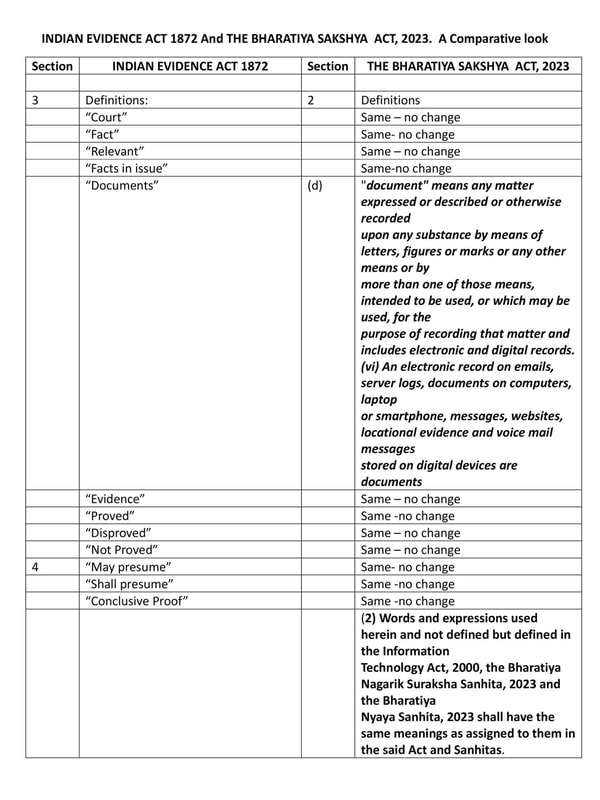




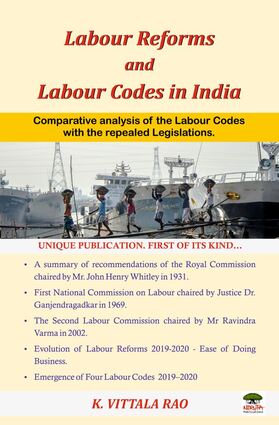
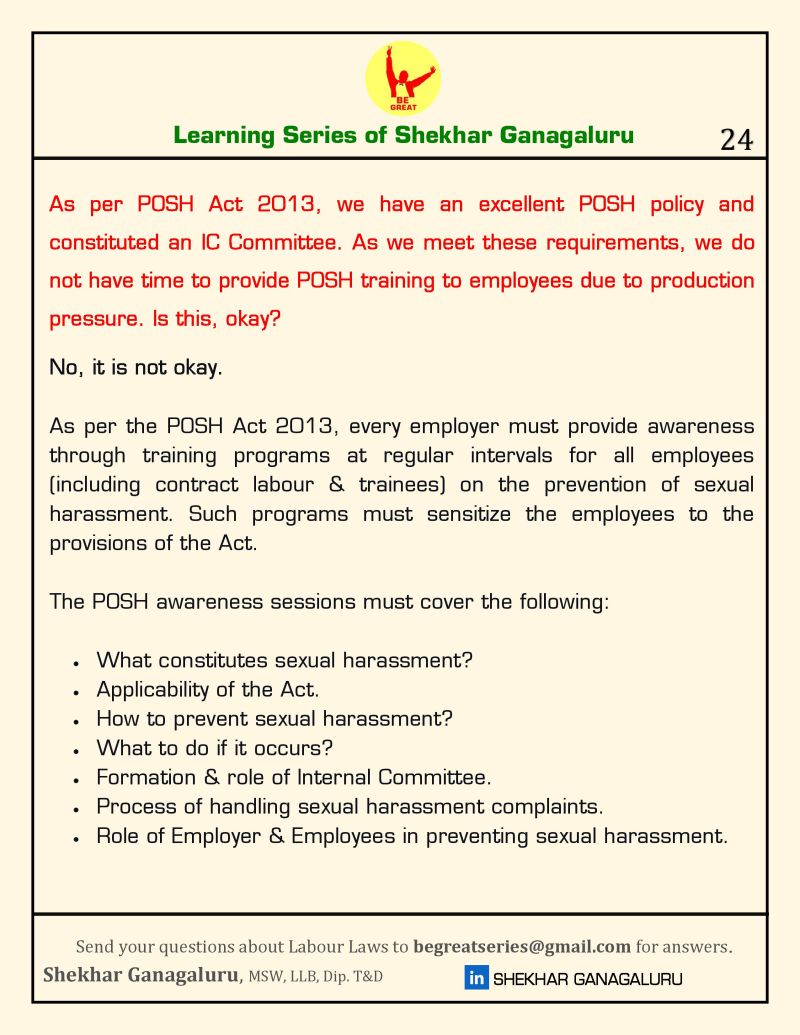
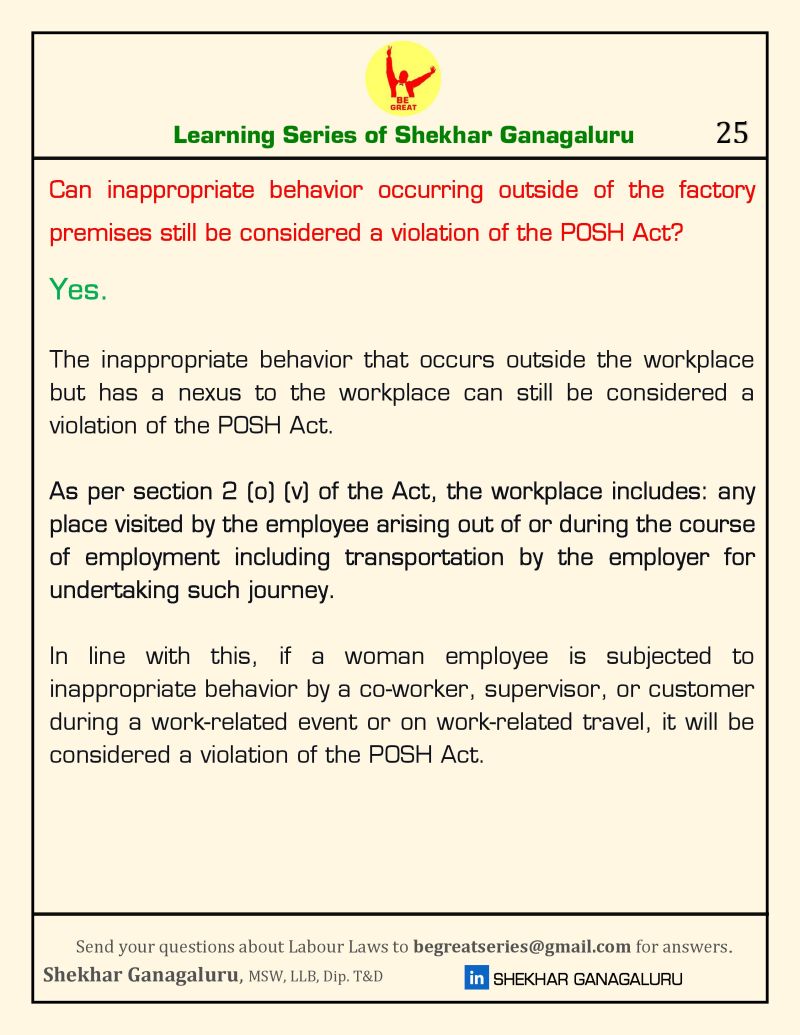
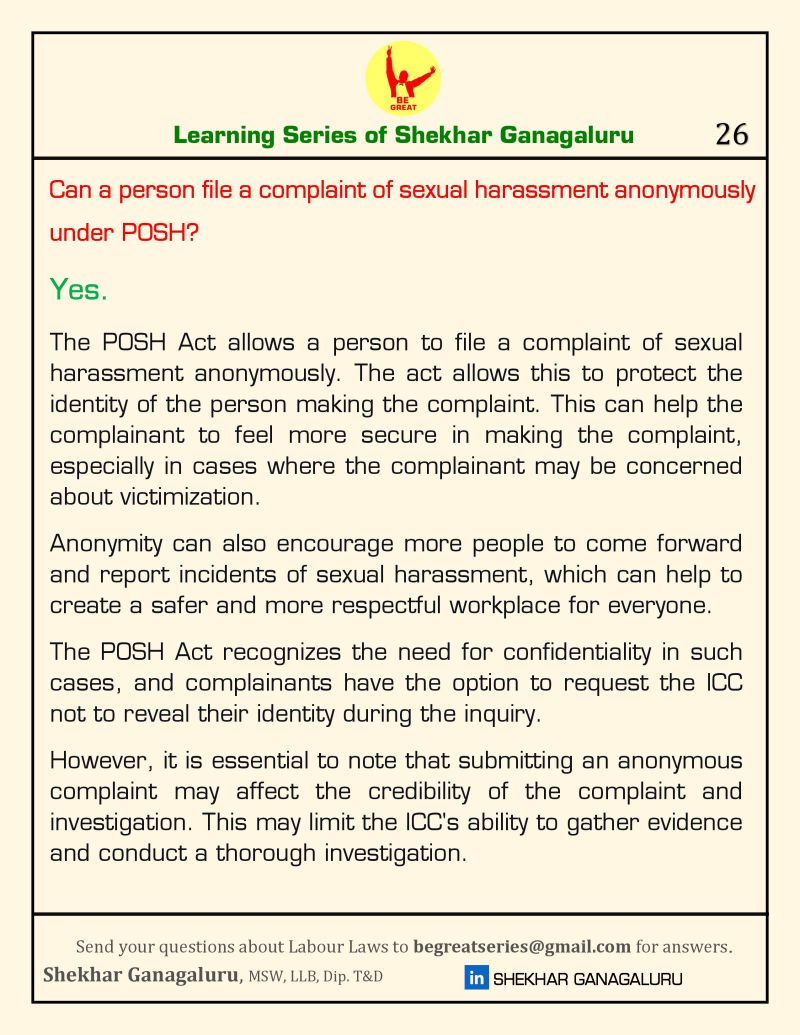
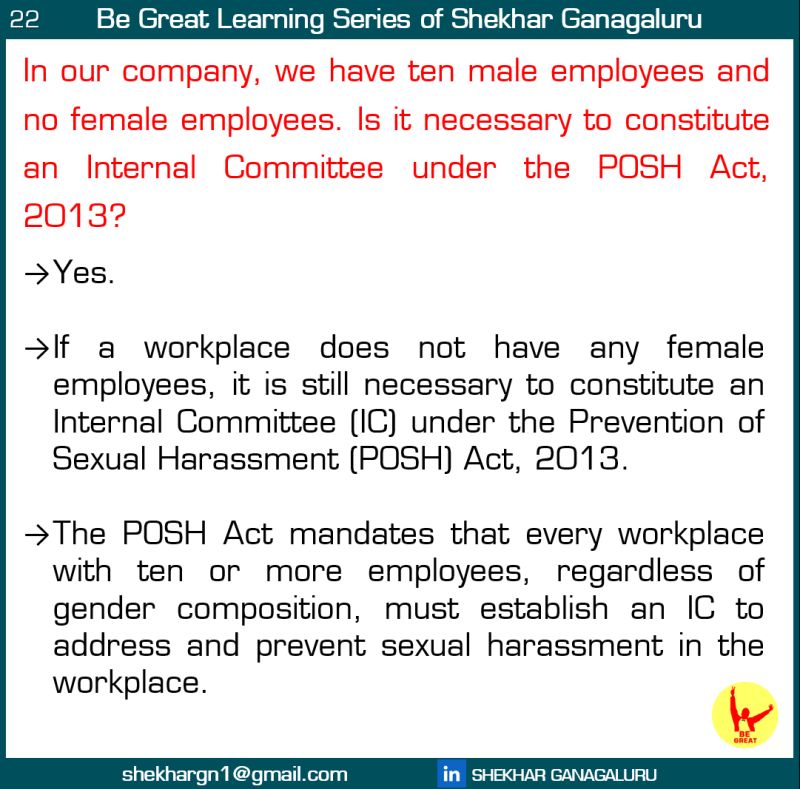
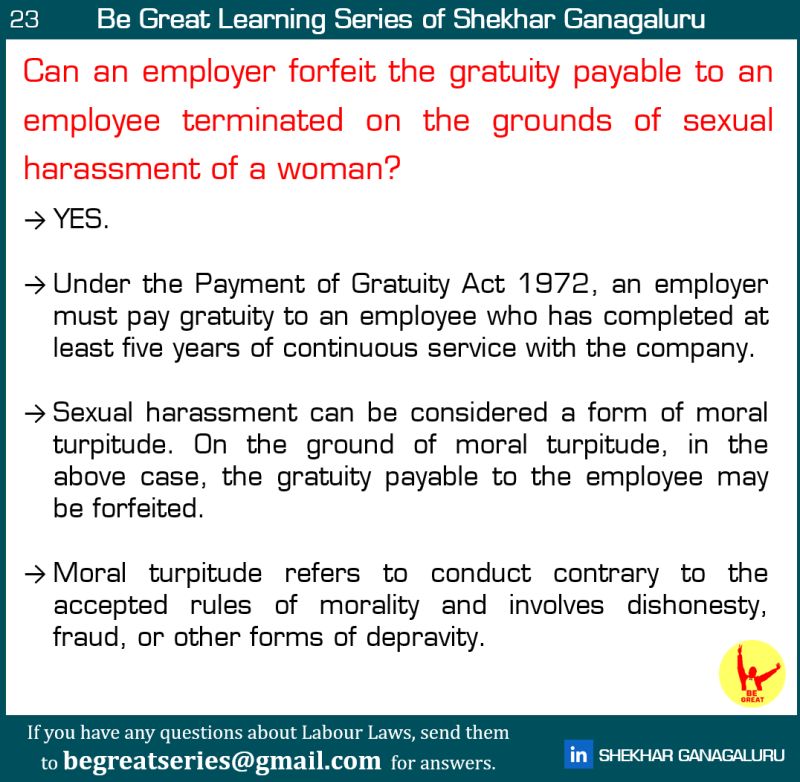

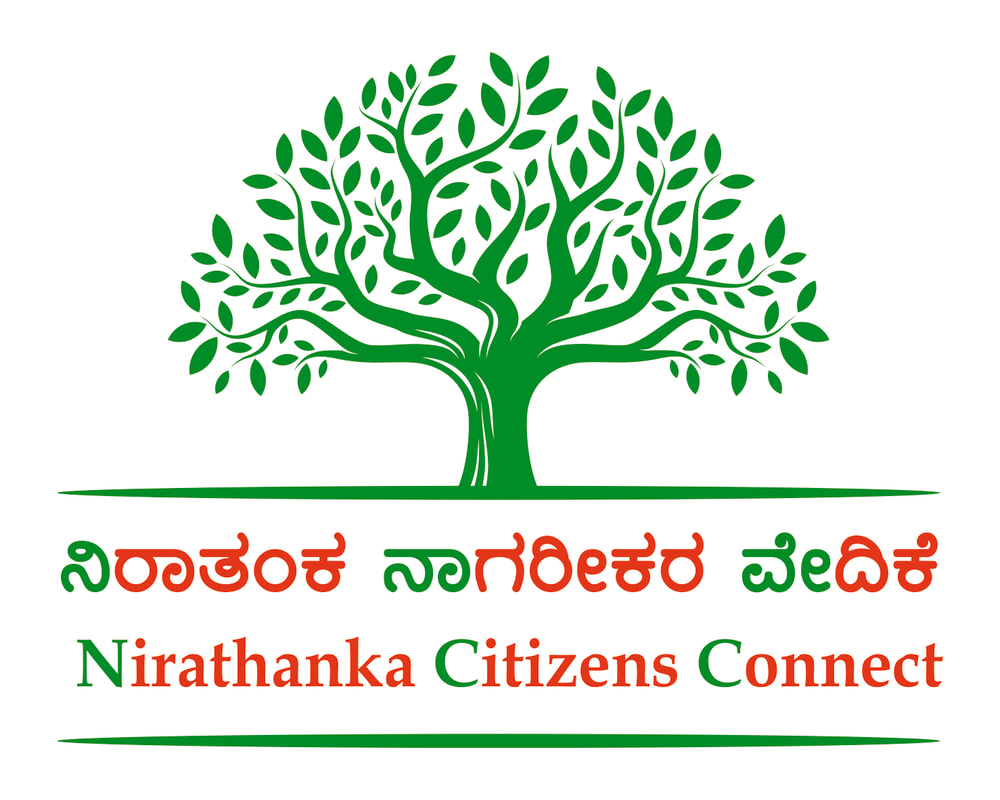



 RSS Feed
RSS Feed





